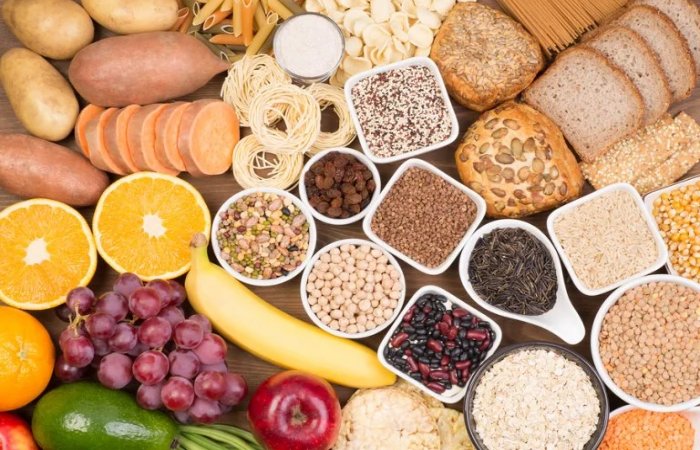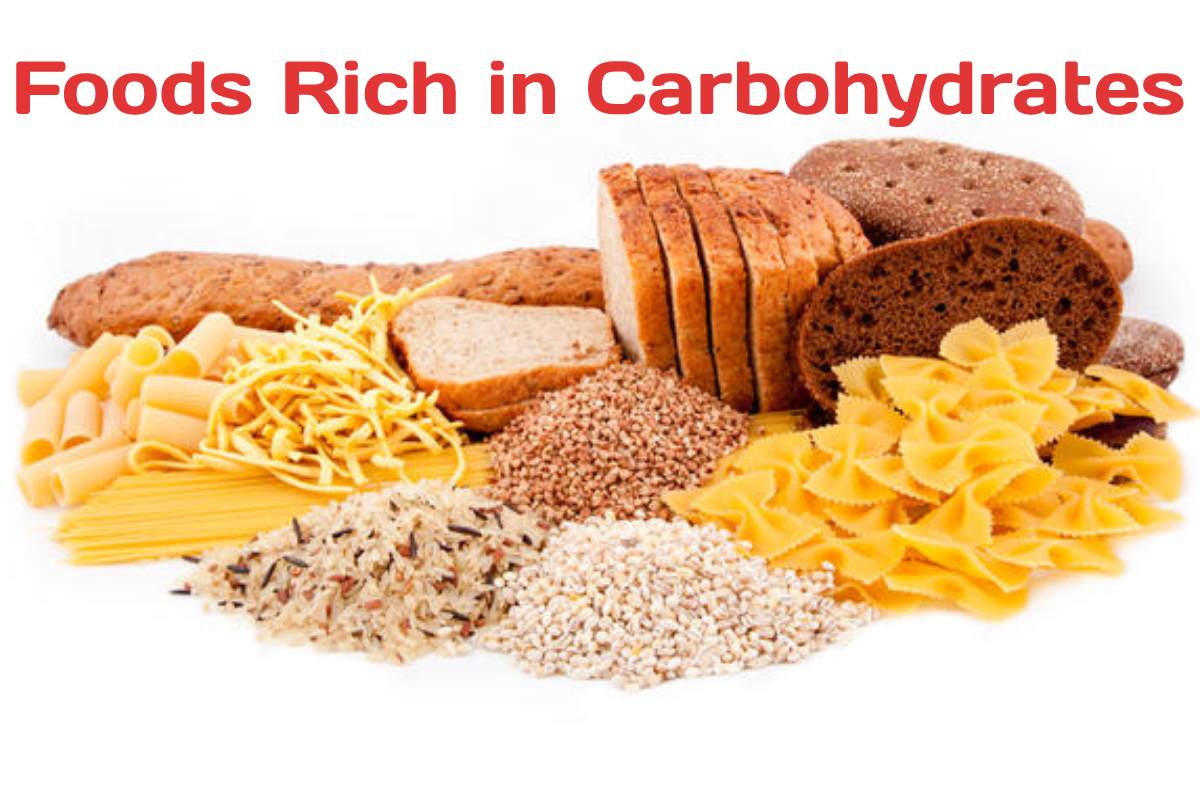Table of Contents
Carbohydrates
Carbohydrates, like protein and fat, are a type of macronutrient. These initiate in foods and beverages, mainly in products of plant origin. Although usually, they are associated with a diet that encourages overweight, the truth is that carbohydrates are not harmful if consumed in moderation; in addition, their daily intake should be greater than the consumption of proteins and fats. Carbohydrates must be present in a healthy diet.
Carbohydrates are compounds that contain carbon, hydrogen, and oxygen. They are burned for energy during metabolism and release carbon dioxide (CO2) and water (H2O).

1. Potato
This is one of the most accessible and cheap foods in the market that you cannot stop consuming in your diet. However, you should leave aside the fried foods, that is, do not use oil.
The best way to eat it is by cooking it or preparing it in the oven; in this way, you maintain the recommended amount of carbohydrates. Every 100 grams of potato is equivalent to 27 grams of carbohydrates, an ideal amount to complement other types of food. In addition, the potato is a source of vitamin B6, vitamin C, and potassium.
2. Banana
Most fruits are sources of essential macronutrients for our body, and bananas are no exception. The most advisable thing is consuming green and ripe bananas after exercise.
This is because the green banana is made of starch, releases energy little by little (ideal for resistance training) and is beneficial for the digestive system, according to this study carried out by the University of Brasilia. While the ripe one is rich in sucrose, which contributes to recharging the body’s energy and improves cognitive functions, as confirmed by this research from the University of Murcia.
3. Oatmeal
Trust it or not, oatmeal is one of the most valuable carbohydrate-rich foods. It is likewise rich in carbohydrates and fibre, providing 50 grams of carbohydrates per cup. And best of all, you can accompany it with:
- Honey.
- Milk.
- Strawberries.
- Yogurt.
- plantains / bananas
- Fruits of the forest.
- Nuts and seeds (such as chia).
4. paste – Carbohydrates
Most elite athletes regularly consume certain sums of pasta in the days leading up to a competition. This is because everyday pasta has a higher glycemic index than rice, which translates into a higher energy intake. Therefore, pasta is another of the most optional carbohydrate-rich foods.
5. Rice – Carbohydrates
Rice is the most consumed cereal in the world after wheat. In addition to being cheap, it is one of the foods rich in carbohydrates, about 80%. Therefore, it is an ideal source of energy before physical exercise. You can escort it with meat, fish or eggs and a small helping of vegetables. The idea is to make it with little oil and consume an amount not exceptional, one cup a day.
On the other hand, brown rice is also a food rich in carbohydrates, although in a lower proportion. This cereal contains only 25.8 grams of carbohydrates per 100 grams of the product.
6. Tapioca – Carbohydrates
This food, belonging to the tubers group, is a healthy source of carbohydrates due to its high starch content; In addition, tapioca is low in cholesterol. Just 100 grams of tapioca makes the equivalent of 22 grams of carbohydrates. This is one of the lowest sodium carbohydrate foods, which is why most nutritionists endorse it in their dietary plans.
7. Bread
Bread is a food rich in decent carbohydrates once made of bran fibre since it increases the bolus of food. Bran is a nutrient that has proteins, fats, minerals and even a percentage of water.
8. Whole grains – Carbohydrates
Whole grains are loaded with low-glycemic carbohydrates, functioning as the fuel needed to carry out various activities. Almost all cereals have a high fiber satisfaction, which is essential to regulate intestinal transit and promote and prolong the state of satiety, according to this study carried out by Tufts University (United States). Its consumption helps regulate metabolism.
9. Flours
All existing types of flour are foods that are very rich in carbohydrates. It is important to remember that these products come from different cereals containing many carbohydrates and fiber.
10. Milk and milk products – Carbohydrates
Dairy products are a source of simple natural sugars. Milk has 5% carbohydrates from lactose, a disaccharide that quickly breaks down into simpler sugars in the intestine. The carbohydrates in milk and dairy products are helpful for brain and musculoskeletal development and the maintenance of intestinal flora in adults.
11. Lentils and Chickpeas
Generally, cooked lentils and chickpeas are eaten in stir-fries, croquettes or creams. They are rich in proteins and carbohy-drates of high nutritional value. In this sense, a 100-gram portion of lentils provides 93 calories and 16 grams of carboh-ydrates. Ch chickpeas provide up to 17 grams of complex carbohy-drates and 5 grams fiber.
12. Corn Flakes – Carbohydrates
Cornflakes are easily the highest carbohydrate food on the list, making up around 80% of the product. The caloric intake remains low since 100 grams of corn flakes will only provide an amount similar to 340 kilocalories.
This cereal can be a breakfast option that offers a considerable amount of energy when you do not have time to cook. However, it is essential not to abuse these products to maintain a healthy weight and proper nutrition.
Conclusion: Carbohydrates
There is a wide variety of foods that contain carbohy-drates. The richest in this macronutrient are tubers, cereals, sugar, fruits, vegetables, and dairy products. These foods contain digestible carbohy-drates and are so named because they are easily digested and absorbed by the body.

